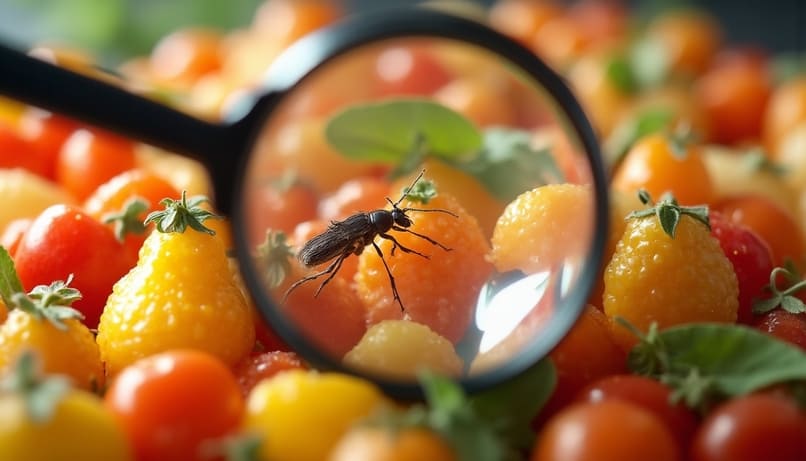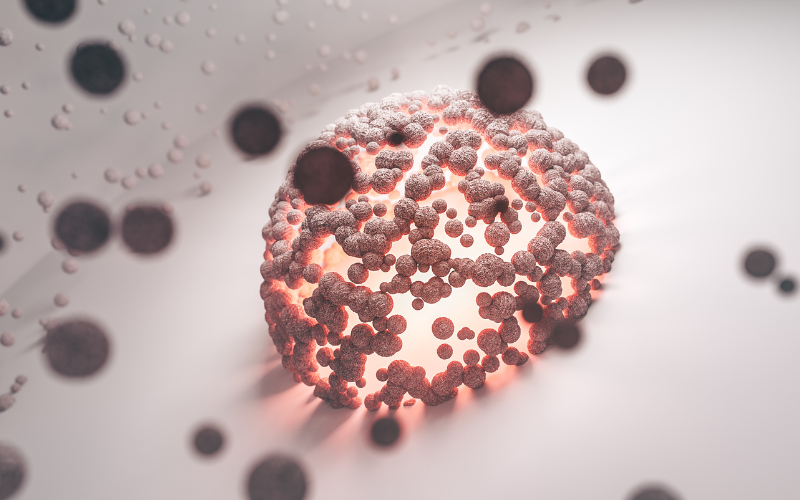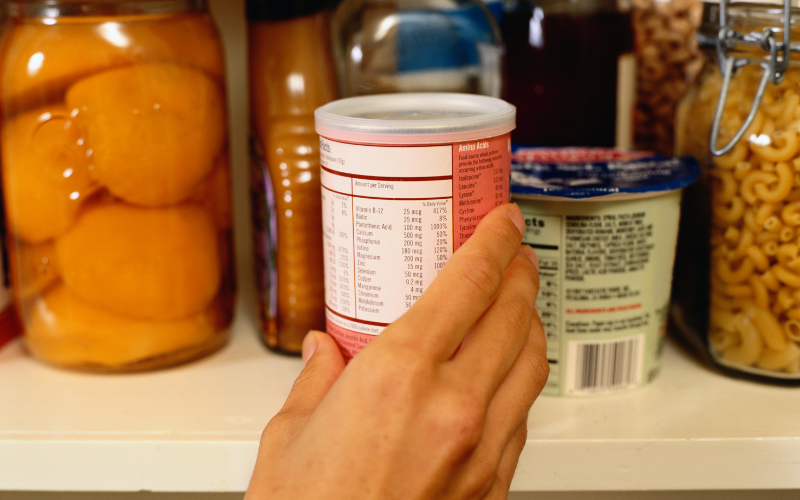Insects in our processed foods are more common than we think. Although some countries encourage the consumption of insects as a source of protein, their unintentional presence in our food products raises questions of safety and health. In this article, we will explore the potential risks associated with the consumption of insects hidden in our food, based on recent scientific research.
After reading this article, you will have:
- An understanding of the types of insects commonly found in processed foods,
- Knowledge about potential health risks,
- Information on food additives derived from insects,
- Tips to minimize risks.
Insects in Our Food: An Unknown Reality
In the world of processed food products, the presence of insects is a topic that is rarely discussed, yet it is very real. Insects, such as Beetles and the food mites, can find their way into our food through production and storage chains. Their traces are sometimes invisible to the naked eye but are nonetheless regulated. Indeed, tolerable levels of insect fragments can be governed by certain food regulations, based on scientific assessments provided by organizations such as the European Food Safety Authority (EFSA), which plays an advisory role in the development of safety standards. Indeed, acceptable levels of insects are defined to ensure food safety, although these thresholds may surprise the average consumer. Understanding this reality allows for awareness of the health and hygiene issues associated with it, and may encourage turning towards more natural and less processed products to minimize risks.
The case of food additives derived from insects
The food additives Of animal origin, particularly those derived from insects, are more common in our processed products than one might think.
Common additives derived from insects
- E120 (Carmine) : This red dye is derived from cochineal, an insect from which a compound called carmine acid, responsible for the intense coloration. Carminic acid is commonly used in the food industry to color products such as candies, the yogurts or some drinks.
- E904 (Shellac) : This food additive is used as a glazing agent, giving an attractive shine to certain fruits or confections. This compound comes from the secretion of the Kerria lacca, another insect.
Risks associated with additives E600 and E605
Other additives such as the E600 and E605, although they are classified in the organophosphates category, raise safety concerns due to their toxic potential.
- Industrial use : These compounds are sometimes used in the agricultural industry for their insecticidal properties.
- Health concerns : Their involvement in food products may raise concerns about potential residues and long-term health effects.
Reflections for a More Natural Diet
These additives, even when they comply with regulatory standards, raise considerations for those who prefer to avoid animal products and prioritize a more natural and environmentally friendly diet. .
Informed choices for better health
By being aware of the sources and common uses of these additives, we can make informed choices.
- Adopt an organic and living diet : This can be a solution to minimize exposure to these substances and promote better health on a daily basis.
This approach is supported by scientific studies, such as the one available on PMC, which explores the implications of insect-derived food additives on health.

Potential health risks
The unintentional presence of insects in our food products is not limited to a matter of taste or texture. It also raises significant health concerns.
Allergies and cross-reactions
Insect proteins, once integrated into processed food products, pose a potential allergy risk for some consumers. In particular, people with sensitivities to shellfish or dust mites must be particularly vigilant. Indeed, the proteins present in insects are structurally similar to those found in these common allergens, which can lead to cross-reactions. Symptoms can range from a simple skin irritation to more severe reactions, such as anaphylaxis, requiring immediate medical attention.
Microbial contamination
Insects present in our processed foods are not just a matter of inconvenience or aesthetics; they pose a real health risk as a Potential vectors of microbial contamination. Insects, due to their lifestyle and environment, can carry a variety of harmful bacteria and fungi. These microorganisms, once introduced into the food chain, have the potential to cause foodborne illnesses, thereby compromising the safety of our food supply.
Insects such as flies, cockroaches, and even certain beetles are known for their ability to carry pathogens such as Salmonella and E. coli. These bacteria can cause severe gastrointestinal infections, especially in vulnerable populations such as children, the elderly, and those whosethe immune system is weakened.
Beyond bacteria, fungi carried by insects can also pose problems. Some of them can produce mycotoxins, toxic substances that can lead to long-term health issues, including liver and kidney problems.
This reality underscores the importance of increased vigilance and better consumer information. By prioritizing products from organic farming and by ensuring the traceability of food, it is possible to reduce these health risks.
Exposure to pesticides
The accumulation of pesticides in insects is a growing concern for human health. These chemical substances, widely used in agriculture to protect crops from pests, can become concentrated in the insects that consume them. When these insects are accidentally incorporated into our food, they can introduce pesticide residues into our bodies.
The impact of this exposure should not be taken lightly. Pesticides, even at low doses, are associated with various health risks, including neurological effects, hormonal disruptions, and an increased risk of certain cancers. Studies, such as the one published on PMC, highlight the importance of this issue by emphasizing the potential implications for public health.
For those looking to minimize these risks, opting for organic and unprocessed products is an effective strategy. Organic foods, in particular, are grown without the use of synthetic pesticides, thereby reducing exposure to these potentially harmful substances. By staying informed and making informed dietary choices, we can not only protect our health but also support more sustainable and environmentally friendly agricultural practices.

How to minimize risks ?
Navigating the world of processed foods requires increased vigilance, especially when it comes to avoiding the unwanted presence of insects and their derivatives in our food. Although the accidental consumption of these elements may seem harmless, it can have significant implications for your health. Fortunately, there are effective strategies to minimize these risks.
Read the labels carefully
Choosing food products may seem trivial, but taking the time to carefully read their labels is an essential step to preserve your health. Food additives derived from insects can be hidden in common products without us being aware of it.. To better identify them, it is useful to become familiar with the list of additives frequently used in the food industry. These additives, although legal and often used for their glazing properties or as food coloring, can be avoided by opting for organic alternatives.
Organic products, in particular, are often exempt from these additives because they adhere to stricter production standards regarding the use of substances of animal origin. Search for the Bio label on packaging can thus help you minimize the unintentional ingestion of insect derivatives. Additionally, learning to decipher the list of additives and recognize the numbering of additives allows for a better understanding of product composition and enables more informed and responsible consumer choices.
By adopting these simple practices, you can not only protect your health but also support agricultural and food production practices that are more respectful of the environment and biodiversity.
Favor non-processed foods
Adopting a diet primarily composed of fresh and unprocessed foods offers numerous health benefits., while reducing your exposure to food additives, insect residues, and ultra-processed foods often rich in hidden sugars, modified fats, and chemical additives. Fresh foods, such as fruits and raw vegetables, nuts, seeds, and sprouted legumes, form the basis of a healthy and environmentally friendly diet.
By choosing minimally or unprocessed foods, you benefit from nutrients in their purest form, without the risks associated with industrial treatments. These foods are naturally free from insect-derived additives such as carmine (E120) or shellac (E904), which are often present in processed products to enhance their appearance or texture. Additionally, a diet rich in fresh products helps preserve the enzymes essential for good digestion, thus promoting better Nutrient absorption.
> To inspire you and facilitate your transition to an unprocessed diet, Explore our article on the benefits ofliving food on a daily basis. You will discover some practical advice and of the meal ideas which celebrate the simplicity and generosity of raw ingredients.
> And to enrich your exploration, feel free to watch one of the episodes of our podcast Rawk'n Roll dedicated to raw food by clicking HERE. This video offers you practical advice and testimonials on the benefits of a raw food diet in daily life.
Proper food storage
Proper food storage is essential to reduce the risk of insect infestation, which can not only alter the quality of your products but also introduce health risks. Here are some simple and effective techniques to protect your food:
Use airtight containers One of the most effective ways to prevent insects from entering your food supplies is to use airtight containers. The glass jars or the plastic boxes with airtight seals not only prevent insects from accessing the food but also preserve the freshness of the products.
Maintain rigorous cleanliness Food residues can attract insects. Make sure to Regularly clean your storage spaces and cupboards. to eliminate crumbs and debris. Regular cleaning not only prevents infestation but also contributes to a healthier home environment.
Control the storage conditions Some insects, like pantry moths, thrive in warm and humid environments. Keep your food in a cool, dry place. to minimize this risk. Lower temperatures and good ventilation also reduce the likelihood of mold and bacteria.
Stock rotation : Adopt the practice of stock rotation, by first using the older products. This not only prevents food waste but also limits the presence of insects, which are more likely to develop in products left unattended for too long.
By implementing these techniques, you not only protect your food from pests but also improve the overall quality of your diet. For those who are interested in a healthy and vibrant diet, these tips remind us of the importance of vigilance in every aspect of your food consumption.

Conclusion
Understanding the risks associated with the presence of insects and their derivatives in our processed foods is essential for anyone who wishes to adopt a healthier and more informed diet. For example, the food coloring carmine (E120), extracted from cochineal insects, and shellac (E904), a glazing agent derived from insect secretion, are used in many common products, including candies, yogurts, or shiny fruits. Although they are permitted by regulations, these additives can cause allergic reactions in some people or raise concerns in cases of prolonged exposure to pesticide residues.
To minimize these risks, it is crucial to carefully read labels and prioritize organic and unprocessed foods, and to maintain good storage practices at home. By staying informed and vigilant, you can not only protect your health but also contribute to a more respectful and sustainable environment. To continue deepening your knowledge of raw food and receive practical advice, consider subscribe to our newsletter.
Your questions and our answers (FAQ)
What are the main health risks associated with the consumption of products containing insects?
The unintentional consumption of insects in processed food products can pose several health risks, including allergies, microbial contamination, and increased exposure to pesticides. Potential allergens, especially for those sensitive to shellfish and dust mites, can trigger cross-reactions.
Which common food additives derived from insects should I avoid?
Among the additives derived from insects, E120 (Carmine), a food coloring used for its vibrant red hue, and E904 (Shellac), a glazing agent, are the most common. These additives are found in various products such as candies and beverages. Additionally, some unintentional contaminations by insects, like food moths or the beetle Alphitobius diaperinus, can occur during the storage or processing of food. Choosing organic and well-stored products can help avoid these components and reduce associated risks.
How can insects introduce risks of microbial contamination in food?
Insects can carry harmful bacteria and fungi that, once integrated into the food chain, can cause foodborne illnesses. Inappropriate production and storage conditions increase this risk, highlighting the importance of maintaining good food hygiene.
What is the implication of pesticides accumulated in insects for human health?
The pesticides used to eliminate agricultural pests can accumulate in insects, which then become potential vectors of these chemicals in our food. Repeated ingestion of these pesticides can lead to long-term harmful effects such as endocrine disruptions and increased risks of certain diseases.
What measures can I take to minimize the risk of consuming insects in my food?
To minimize these risks, it is advisable to carefully read product labels to identify additives derived from insects, to prioritize organic and unprocessed foods, and to follow good food storage practices. Airtight containers, rigorous cleanliness, and storage at appropriate temperatures are essential to reduce the risk of infestation.
Why is it important to prioritize unprocessed food?
A diet composed of unprocessed foods not only reduces exposure to undesirable additives and insect residues but also ensures better nutritional quality. These foods are generally free from insect-derived additives and retain their essential nutrients, thus supporting better digestive and overall health.









